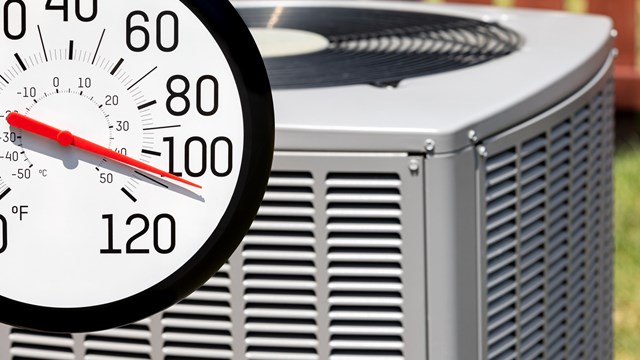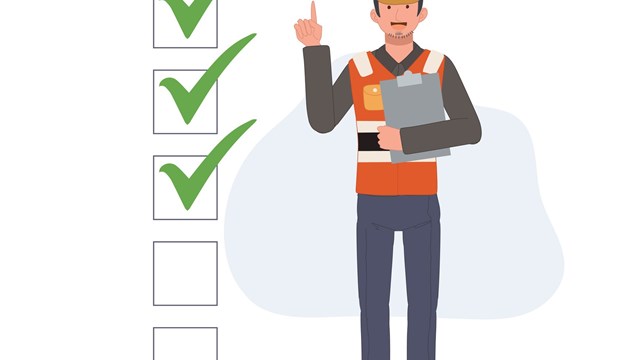
The boiler squats at a building’s core, churning out heat like some hulking behemoth of the deep. We tend to take the boiler and its labyrinth of pipes entirely for granted, except when it fails to work properly. Ignored in spring and summer, the sleeping giant must be awakened carefully before temperatures begin to drop in autumn.
Heating systems are among the most costly items to buy, operate, and repair in the entire condominium complex. So it makes sense to mitigate those costs by understanding what type of system you have, how efficient it is, and how to maintain it in peak condition.
Our ancestors burned wood or coal to stay warm. Later, coal-burning boilers gave way to cleaner gas- or oil-fired equipment, but the heat these devices generated could not really be modulated. “The old boilers just ran full tilt all the time,” says Larry Sweet of Lawrence V. Sweet Plumbing and Heating in Lexington, Massachusetts. “And a great deal of the heat went right up the chimney.”
Today, our homes are readily heated by ever more efficient, and complex, boilers and furnaces. These newer heating systems also benefit from technologies that reduce the amount of carbon dioxide released into the atmosphere. With the cost of fossil-based fuels continuing to fluctuate, manufacturers are also responding to government and consumer demands to build boilers that can squeeze the most out of every unit of energy.
New standards and regulations are being adopted each year to improve operational efficiency and conserve energy. So even if that boiler in the basement was purchased and installed as recently as three years ago, new models possess superior technology.
Know Your Heating System
First, it’s helpful to know the difference between a boiler and a furnace, because people tend to use the terms interchangeably. You will improve your credibility with a technician, and also avoid bringing in the wrong kind of technician, if you know what type of heating system you have. A boiler provides steam or hot water for radiators or baseboard heating. A furnace generates hot air that is carried through ducts and vents. Either type may be fueled by oil, natural gas, or propane (all derived primarily from fossil fuels).
Another type of system, which is gaining in popularity, is a heat pump, which runs on electricity. Ordinary heat pumps extract heat from the outside air and pump it indoors in winter, reversing the process in summer to cool the building. A geothermal heat pump relies on heat drawn from the ground, and can provide heating, cooling, and in some cases, domestic hot water.
The top three energy sources for home heating in the United States are, in order, natural gas, heat pumps, and oil, according to John Ambrosino of Total Temperature Control in Wakefield, Massachusetts. He adds that heat pumps are steadily gaining ground in New England. On the periphery are hybrid systems (which combine heat pumps with a fuel source), wood pellets, and solar power.
The choice of fuel is largely determined by several factors: geography, availability, and cost. Gas lines are more common in urban and suburban areas while rural homes often turn to oil or propane because these fuels can be delivered by truck. If a building was constructed during a time when the cost of a particular fuel was low, the decision would have been based partly on economics.
Natural gas is regulated so its cost has not fluctuated as wildly as oil. Independent companies distribute heating oil, which is bought and sold by independent dealers much in the way that gasoline is. In the last six or seven years, Ambrosino says, oil rose from $.45 and $.60 per gallon to $1.20 and then to $4.00 before settling down.
Benefits and drawbacks exist with each kind of system but one thing is clear: “Oil products require the most maintenance,” says Ambrosino. The burning of fuel oil creates conditions that require regular inspection (at least once a year) and scrubbing and cleaning of components by a qualified technician.
But owners with gas-fired heating systems should not just complacently sit back and relax. “People get into trouble when they think they don’t have to do maintenance on a gas system,” says Sweet. “It should still be done yearly.”
Visual Inspection Prior to Season
Just before heating season begins, the building supervisor or property manager should do a visual check of the boiler or furnace and its connecting parts. First, look over the jacket, or housing, of the system for “hot spots”—if there are brown spots, you have a problem, says Sweet. Look for evidence of deterioration and leaks, including rust spots, all the way from the boiler to the chimney. For a steam system, look on the radiator valves for water seepage and at the floors underneath for warping or other evidence of water damage. For a forced hot-air system, inspect the ductwork for gaps and other places where heated air could escape.
The super or manager should also keep up with scheduled replacement of filters as specified in the maintenance manual. He or she may also monitor the system for efficiency, proper pressure readings, and safety controls. Any maintenance that requires taking the casing off or involves more intervention should be left to a professional. For example, a technician working with gas must have a Master Plumber’s license.
Evidence of damage, corrosion, or undue wear should be documented and brought to the attention of the technician at the annual inspection and safety check. Homeowner associations may want to order the building super to report each fall on the condition of the boiler or furnace. A reputable technician who is specifically trained and certified to perform maintenance on that type of heating system should be brought in to disassemble boiler or furnace parts and thoroughly clean or replace them.
The technician should also inform the association of new laws that relate to the heating system, such as the law requiring upgrades of safety valves or supply-line safety sleeves for oil-burning systems that took effect in September 2011. Another recent law mandates installation of carbon monoxide detectors in the boiler room and on every floor of the home, just like smoke detectors.
Sweet says as part of his yearly check he asks clients to recall how their heating system behaved the previous season. This helps him track issues that may have developed over the previous winter. Ideally, serious problems would have been fixed in spring, before the heat was shut off. “But we see people who had problems in late spring but just hope for the best when they turn the heat on again in the fall,” says Ambrosino.
It’s the condo association’s responsibility to perform due diligence and learn enough about the particular system they have to evaluate whether the heating contractor is up to the task of caring for the equipment, Ambrosino says. The more high tech the equipment, the more complicated it is to service. Also, the same technician who installed your system may not be qualified to service it, as these two tasks require different licenses.
While building codes govern the installation of heating equipment, few laws specifically mandate the maintenance of such systems, at least in the case of residential heating. In Massachusetts, boilers exceeding 15 psi and that have more than four square feet of grate surface, or are of more than three horse power (hp), should be thoroughly inspected externally and internally at least once a year.
But there are laws relating to housing conditions that may be invoked if your boiler goes kaput and residents are left for some time without access to heat or hot water, says Don Atkinson of Energy Efficiency Services in South Lancaster, Massachusetts. Besides, what condo association wants to field complaints from cold and irate homeowners?
Atkinson’s company, among others, rents out portable boilers that can be towed by truck to the site, hooked up, and run until the building’s heat can be fixed. For example, Energy Efficiency Services provided a small boiler for a 50-unit condominium complex in Maine for a week in March, at a cost of $7,000.
As with so many things, regular maintenance is key to avoiding nasty surprises and unplanned expenses.
The heating industry does offer programs such as preventive maintenance contracts and boiler insurance, although the experts interviewed by New England Condominiumwere lukewarm about whether these services really help the consumer. Preventive maintenance contracts vary from company to company but most provide a certain number of service calls for a flat rate. While this might make sense for a condo with an aging boiler or furnace, generally speaking “most of the policies have so many exemptions that it’s not really helpful,” says Atkinson.
Boiler insurance is more common for industrial and manufacturing properties that could suffer huge financial losses if a boiler becomes inoperative, but some condo associations choose to purchase it, or find that their insurance company recommends the extra coverage.
Of far more help to consumers are the free energy audits and rebate programs provided by utility companies and state energy agencies. In the Northeast, utilities have become concerned about steady population growth and have put incentives in place for customers to conserve so that more energy is available across the grid, says Ambrosino. They don’t want to see happen here what has occurred in California: power shortages and brownouts resulting from the state’s rapid development and extraordinary demands on the grid.
First Signs of Inefficiency
For many people, the first sign that something’s amiss is a steady or rapid increase in the monthly fuel bill. Heat is escaping out of the building someplace, and you’ve got to put on your deerstalker hat to sleuth out the culprit. It could be the chimney, or the windows, or more likely, the attic.
“Proper insulation is important,” says Ambrosino. “Forty-two percent of a home’s heat loss is out through the attic.” Energy efficiency experts recommend insulation rated from R-38 to R-49 in the attic, he adds, but most homes have nowhere near that amount.
In addition to attics, condo associations will want to consider insulating outside walls and caulking or replacing windows. They should provide tips for homeowners to get the most out of their heating system, including keeping furnishings away from vents and baseboards, as well as taking advantage of passive solar gain, which can be as simple as opening curtains on south-facing windows during the day, and closing them at night to help retain heat.
Another aspect that is often neglected is sufficient airflow around the boiler or furnace. The combustion process requires oxygen. If the basement of the condo building contains exhaust vents for dryers and other equipment that is drawing air out of the building, the heating system may not receive enough air to get the job done efficiently. Doors to all the rooms should remain open to increase airflow.
How Long Do They Last?
Boilers and furnaces generally last about 15 to 20 years. But it’s important to realize that any heating apparatus loses one percent of its efficiency each year, Ambrosino says. So at the 10-year mark, your boiler may have lost enough significant efficiency that it makes more sense to replace it sooner and reap the savings.
“When we talk to people about replacing their boiler, they will say ‘I haven’t had a problem with it in 40 years,’” says Ambrosino. They may not have had a problem, but their old system is costing them much more to run. “Make sure you have a system that’s close to the higher AFUE (Annual Fuel Utilization Efficiency) rating. If you don’t, it’s time to replace it.”
Real savings are best achieved through lowering the boiler temperature, says Sweet. For every three degrees the boiler temperature is lowered, you gain one percent in fuel savings. The newer boilers can do this without sacrificing comfort, he says.
April Austin is a freelance writer and a frequent contributor to New England Condominium.






Comments
Leave a Comment